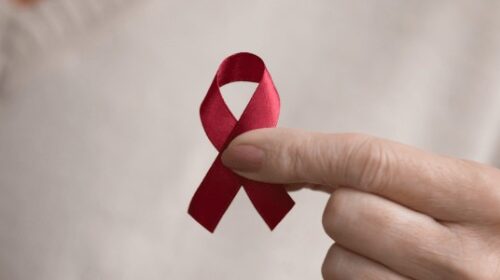The Humanity of Fame: Celebrity Loss and Its Profound Impact on Mental Health
When scrolling through your favorite celebrity’s Instagram page, do you imagine what it would be like to rock that designer outfit on the red carpet or get an invite to exclusive industry parties? We’ve all been there—fantasizing about the glitzy world of fame, but another side is not as glamorous.
The Allure of Celebrity Culture
Celeb culture is a language we’ve all learned to speak. We admire and gossip about them, but in the end, they’re ordinary people like us.
Ask any celebrity or professional athlete; fame isn’t all it’s cracked up to be. It’s extremely complex and comes with a wide range of emotions. Past the glimmering lights, there can be really dark lows that only those who’ve experienced it firsthand can understand.
We idolize and scrutinize celebs, yet most “normal people” don’t truly understand what being in the constant limelight means. Their every move is watched, creating a tremendous amount of pressure. Celebrities must be careful of each step they take and mindful of the possible repercussions of their actions. And what’s worse, they have to react to people’s perceptions, which aren’t always reality.
Celebrity culture curiosity
Let’s face it; we’re all a little curious about the lives of the people we see on TV and in movies. What do they eat for lunch? How do they handle stress? What do their pajamas look like?
Celeb culture thrives on our curiosity. We want to see and hear more about their daily lives. And the more we know about our favorite celebs, the more we feel connected to them.
Escapism for normal people
Perhaps you’ve dreamt about what it would be like to live a life of luxury. You have more than enough money, a lavish home(s), a professional chef, and expensive cars, and you might not even have to work anymore, depending on how you got all that money.
Thanks to social media, we escape our mundane lives and get an inside look at their extravagant lifestyles from the comfort of our couch (that we got a deal on at Costco).
Tuning in transports us to a world where we don’t have to think about how our food gets on the table, and every day can be an adventure of whatever we want it to be.
Shared experiences and connection
Celebs are people, just like us. They go through the same emotions we do—joy, success, heartbreak, failure. And we feel closer to them than ever when they openly share these moments.
Their vulnerability connects us on a human level and reminds us that celebrity status and fame don’t make you any less human. Famous people deal with life’s ups and downs too.
In our digital world, celebs become part of our social circles. We get to comment and engage with them online and sometimes get a reaction from them (or their social media team).
They become almost like our personal friends that we keep tabs on, and they give us something to talk about at the office.
Social media has played a large role in boosting celeb culture, making our idols more accessible than ever before. But the pervasive influence of social media gives us an inside look at their lives, good and bad. The constant feedback loop amplifies our obsession with the celebrity culture many celebs find themselves stuck in. Because once you’re known for something, it’s almost impossible to be regular again.
The Dark Side of Fame
Imagine everyone knowing your name, people constantly wanting to take a selfie with you or get your autograph, and cameras following your every move. Although it sounds slightly exciting, it’s not all fun and games. And it can get old real quick.
Having enough money for anything you’d ever want is great. Still, celebrities face pressures and challenges due to their fame—constant scrutiny, invasion of privacy, and unrealistic expectations.
Pressure to perform
We have a perception of our favorite celebrities, and whether we realize it or not, we expect them always to be that person. Because everyone is watching, it puts enormous pressure on them to do and say the right thing.
Even when they feel like they want to hide, a spotlight is shining on them, and they’re expected to be someone everyone loves. There’s a paradox of fame, where public adoration and personal struggles coexist, leading to isolation and loneliness.
No privacy
They’re living in a world where everyone knows their business. Their private moments are caught on camera and shared with the entire world. They can’t go to the grocery store without people watching or photographing them. Social media can be a really hostile place; the comment sections go wild, and people judge harshly.
Feeling mixed emotions
Celebrities seem to have it all, but they feel emotions like the rest of us. Sure, they have everything they could ask for—fancy cars, gigantic homes, and the most expensive designer clothing money can buy. But money simply can’t buy happiness.
Fame isn’t always a smooth ride, and your personal problems don’t disappear because you have money. Celebrities have their own personal challenges, just like everyone else.
Celebrity Loss & Impact on Fans’ Mental Health
Celebrity loss has psychological effects on fans, including feelings of grief, sadness, and a sense of personal connection to the celebrity.
It may sound strange to some, but celebrity loss can devastate us even if we’ve never met the person. When you admire someone, they are a part of your life from a distance. It can feel like losing a friend you’ll never get a chance to meet.
“It’s unnerving when someone you look up to passes away tragically. It was hard for me to believe that it was real at first,” said host of the Sober Powered podcast, Gillian Tietz, about the accidental overdose death of Dave Hollis in February of 2023.
“I felt really connected to Dave because we both struggled with alcohol. I was very sad for his family, and I hope his tragic passing can help us get more resources for those struggling. Getting help is hard enough, but I can’t imagine how difficult it must be when so many people are watching,” said Tietz.
The ripple effect on society
Celebrity losses can trigger collective grief and a sense of shared mourning on a global scale. When it happens, it can feel like the whole world shuts down for a while.
As a society, we have shared feelings about celebrities. This creates a bond, even though we’ve never met. Two strangers watching a football game at a bar become immediately connected because they’re rooting for the same team.
Depending on how a community reacts to a celebrity loss, it can shed light on how we cope with our feelings and societal mental health issues. These unfortunate moments remind us that everyone goes through tough times, and it’s essential to help each other.
Celebrity legacy
When a celebrity dies, they become the topic of conversation in social circles. Sharing feelings about the person can bring people together, leading to important conversations about mental health, celebrity pressure, substance use, and the importance of living your life to the fullest.
The legacy left after a celeb’s death can inspire positive change in our society too. Their impact can motivate us to support charitable organizations or those in need. Remembering their values can spark conversation about what’s truly important in life, and it may motivate us to make positive changes.
A celebrity’s death can also break down the idea that fame means your life is perfect. Everyone struggles, and the loss may encourage us to look at our mental health.
Mental Health in the Wake of Celebrity Loss
Losing one of our idols can have an extremely detrimental impact on our mental health. So it’s vital to utilize coping mechanisms to deal with the emotional aftermath.
Avoid comparing
Everyone’s life is unique. Although we may have similarities with celebrities, we can’t get caught up in the comparison game. Remember, so much of what we see is a curated highlight reel of their life.
Comparing your life to theirs removes your unique experiences and can lower your self-esteem. So embrace your strengths and your individuality. You are enough!
You’re not alone
You might think that you’re the only one feeling this way or that you’re overreacting. “But you didn’t even know them,” a friend tells you. Celebrity loss affects people across the globe and can have a substantial impact on your mental health.
Talk about your feelings
Remember, it’s OK to feel sad or angry or that life is unfair. Talk with your family and friends about how you’re feeling. If you feel out of control, overwhelmed, or turn to substances to numb your feelings, consider talking to a professional who can help you work through your emotions.
Take care of yourself
As always, put yourself and your well-being first. Focus on personal growth. What are you passionate about? What do you want to achieve? Use this loss as motivation to live a full and beautiful life. You deserve it.
Reflect on your own emotional responses to celebrity losses and talk with your friends and family about mental well-being in the wake of a loss. Remember, you’re not alone.

























